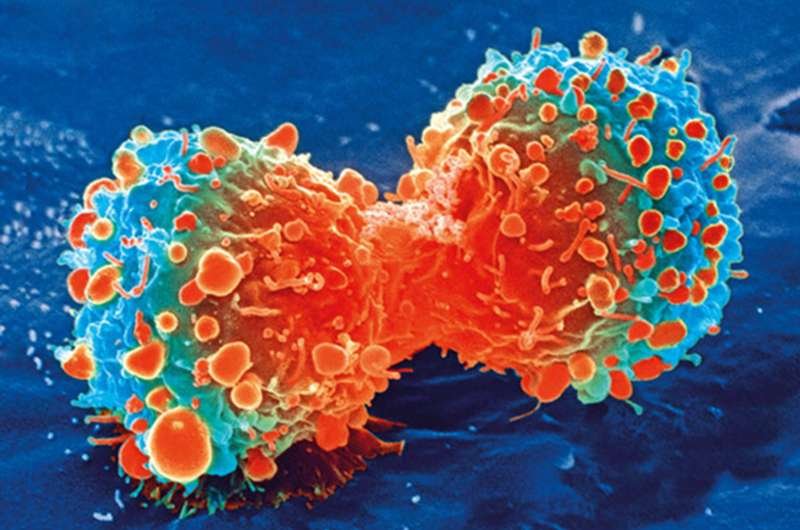
Credit: National Institutes of Health
News • Cancer research
How the body fights back against leukemia
New research from the University of East Anglia (UEA) and Quadram Institute reveals how our immune system can be triggered to attack cancer cells.
The research, published in the Journal of Clinical Investigation, could help develop new approaches to treating people with leukemia. The team studied acute myeloid leukemia—a blood cancer which is very difficult to treat and identified a process of activating the immune system to fight the leukemia cells.
The research was led by Dr. Stuart Rushworth from UEA's Norwich Medical School, in collaboration with Quadram Institute, Earlham Institute and the Norfolk and Norwich University Hospital (UK).
The team found that immune cells known as macrophages could be programmed to attack the cancer cells through a protein known as STING (Stimulator of interferon genes), a well-established activator of the immune system. The team also discuss the potential impact this could have on future treatments.
Dr. Stuart Rushworth, from UEA's Norwich Medical School, said: "Our results provide insight into how the immune system is able to be utilized to attack cancers if given the right signals. Patients often relapse following treatment for cancer, because small amounts of disease remain despite chemotherapy. Our research reveals that targeting this biological phenomenon could help eradicate the leukemia from the bone marrow."
The researchers identified these mechanisms in the bone marrow of leukemia patients and mouse models of acute myeloid leukemia. Dr. Rushworth said: "At present, sadly chemotherapy is often not enough to cure people of leukemia. In the future, I hope our findings will help improve treatments for people with leukemia by priming their immune response to help the chemotherapy drugs work better."
Dr. Naiara Beraza at the Quadram institute, said: "In this study we have contributed to uncover a novel mechanism by which cancer cells control the body's immune response to promote their own growth. This finding will enable future improved therapeutics to treat leukemia."
Source: University of East Anglia
01.03.2022





